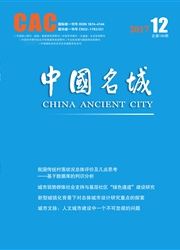

 中文摘要:
中文摘要:
是什么驱动着工作场所和政治上的合作、民主、信任、经济与人口增长?抑或是对它们形成阻碍?普特南、韦尔巴等、佛罗里达、格菜泽、劳埃德、斯科特和波特等发展出的西方模型所强调的变量,在分析亚洲时有时会出现显著的差异。从托克维尔强调“参与促进合法性”到“波西米亚促进创新”,这些依托于个人主义和个体主动性的观点或模型,在对中国、韩国和日本的相关动力展开新研究时,相对于对美国、加拿大、法国和西班牙的分析而言,经常会遭致失败或大幅转变。当西方社会中社会团体在发挥驱动力方面的作用减弱时,诸如卡拉OK餐厅和酒吧等在巩固工作场所、家庭的团结方面开始扮演关键角色。本文构建了一个多层次的解释框架来理清:文化、政治和经济动力如何渗透到不同且富有变化的组合(背景)中。年轻人、工人与普通大众的参与或疏离左右着其他社会过程。艺术和文化在不同环境下不仅可以构成时尚和魅力,也可以分离成违规和非真实。这些都会随着背景的不同而发生改变。
 英文摘要:
英文摘要:
What drives workplace and political collaboration, democracy, trust, economic and popula- tion growth? Or protest against them? The Western models emerging from Putnam, Verba et al. Florida, Glaeser, Lloyd, Scott, and Porter stress variables that sometimes shift dramatically in Asia. Those relying on individualism and personal initiative, from Tocqueville on - which stress participation as driving legitimacy, and bohemia as innovating - often fail or shift drastically in a new study of related dynamics in China, Korea, and Japan, compared to the United States, Canada, France, and Spain. Karaoke restaurants and bars can play critical roles, reinforcing workplace and family solidarity, while organized groups shift in their dynamics from the West. We are constructing a multilevel interpretative framework specifying how cultural, political, and economic dynamics interpenetrate indistinct but varying combinations. How engaged or alienated are young persons, workers and the general public shift other processes. Arts and culture can build glamour and charisma, or alienate as transgressive and inauthentic; each varies by context.
 同期刊论文项目
同期刊论文项目
 同项目期刊论文
同项目期刊论文
 期刊信息
期刊信息
